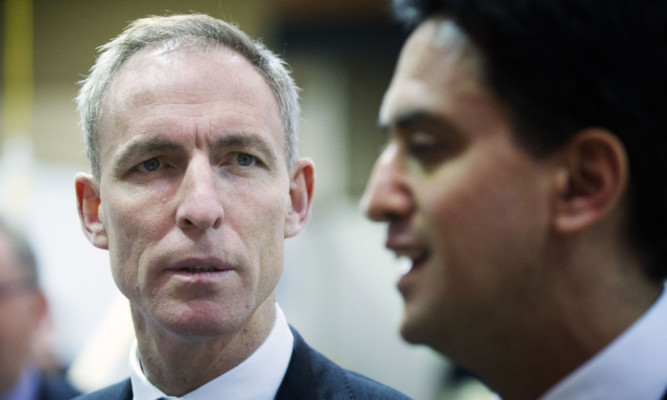Scottish Labour leader Jim Murphy said his party would maintain the freeze on university tuition fees in Scotland if it were in power to give working class kids the best start in life.
This follows hot on the heels of Ed Miliband’s plan to cut fees in England, Wales and Northern Ireland if he becomes Prime Minister from £9,000 to £6,000 a year a move that has alarmed academics, who argue that universities need stable, long-term funding.
Both are election gimmicks, aimed at attracting voters rather than improving either the quality of, or access to, higher education, and will leave universities out of pocket, penalise taxpayers, and have zero effect on the social engineering of university places.
We already know this in Scotland because tuition fees have long been banned altogether, at least for Scottish and EU students, and we can see how the theory works in practice.
The idea that fees deter poorer students has been disproved since their introduction in the rest of the UK; in fact, applications from poor students hit a record high this year.
The current system (outside Scotland) works well. Undergraduates borrow from the government to pay for fees and living costs and only repay 9% of their earnings over £21,000.
Debts are written off after 30 years so lower earning graduates, who pay back less per month, could end up never repaying the full amount. In effect, the true cost of university depends more on life-time income than on the fee, with those who earn the most paying back the most.
According to a report in this week’s Economist, Miliband’s plan would result in lower repayments from well-off high earners, like bankers and lawyers and it would leave universities with less money.
Less funding from fees makes universities dependent on central government and robs them of their autonomy, as we saw during the referendum, when voters looked in vain to Scotland’s brightest minds for guidance over independence.
A group of professors, fearful of losing valuable research grants if Scotland left the UK, wrote in a Scottish newspaper last year: “In the debate about independence it is ironic that the Scottish Government is able to speak freely while the heads of our leading research universities (and the umbrella organisation Universities Scotland) and our premier learned society, the Royal Society of Edinburgh, have to date felt obliged to remain neutral because they receive Scottish government funding.”
Only the principal of St Andrews, Professor Louise Richardson, was brave enough to instruct her staff to voice their opinions, and she was pressured by the then First Minister, Alex Salmond, to tone down her warnings over separatism.
Mr Salmond even tried to pressure Ms Richardson into releasing a statement that praised the Scottish Government and criticised Westminster over its higher education policy.
This is just one consequence of Scotland’s ban on tuition fees. Another is the limit it places on Scottish students who want to study at Scottish universities. Because universities have finite funds, they must cap the number of “free” students. In practice, this means that fee-paying overseas or English students are favoured in the clearing system, for example because of their ability to pay.
There is also evidence that Scottish students are losing out to the best EU candidates, who flock here for the free tuition (as it is illegal to discriminate against people from another EU state, though not from another UK country).
Statistics obtained under the Freedom of Information (FOI) Act found the number of Scots accepted at Glasgow, Edinburgh, Aberdeen and Dundee universities has fallen over the past two years.
Over the same period the number of applicants from other EU countries given a place has increased, with one academic saying Scottish teenagers are being forced to go head-to-head with the “crme de la crme” from Europe. The upshot is that a greater number of Scots are forced to study at less prestigious institutions.
Tuition fees are an emotive issue and with an election on the horizon it’s hardly surprising that Labour, in Scotland and London, is lobbying for the student vote. But if Mr Miliband and Mr Murphy really want to help poorer children go to university they should focus all their efforts on school reform.
